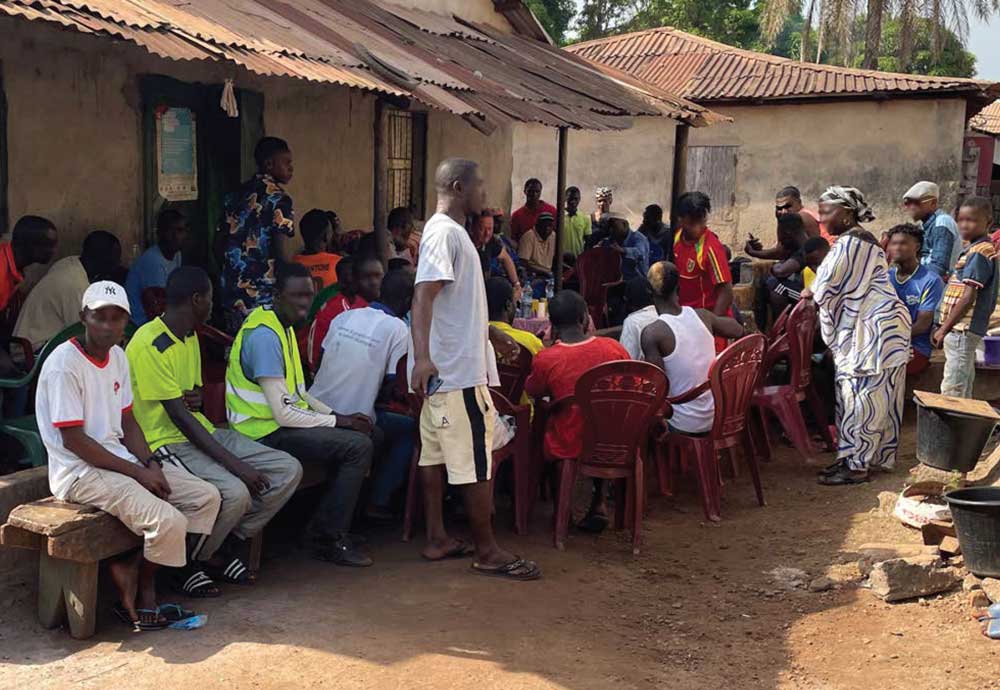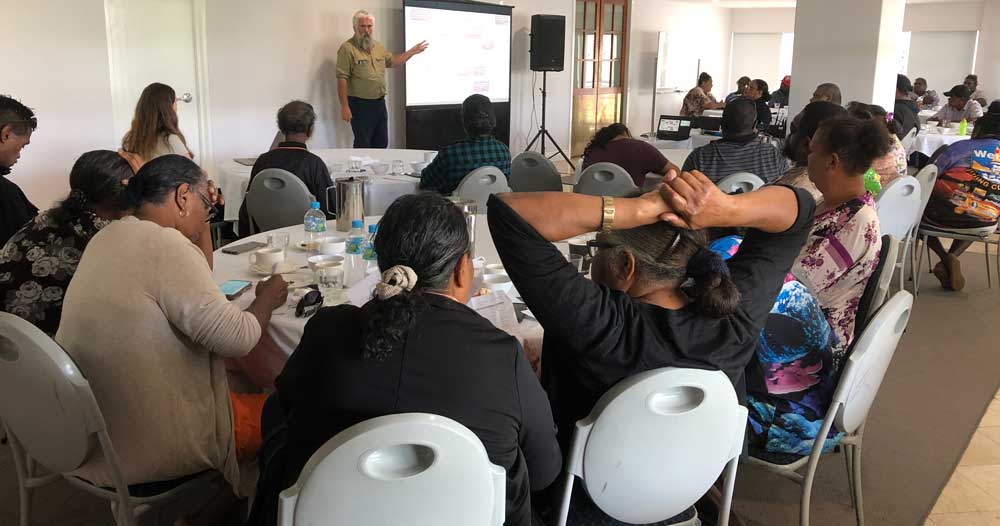Empowering Indigenous Communities in Bauxite Mining Impacted Areas
ASI and the Indigenous Peoples Advisory Forum are leading a series of capacity-building workshops on mining throughout bauxite exploration and mining regions in Australia and Guinea.
25 April 2023
The Importance of Capacity Building for Free Prior and Informed Consent
The increasing siting of bauxite mining operations on the traditional lands of Indigenous peoples/local communities creates the need for capacity-building and Free Prior and Informed Consent (FPIC) processes to empower these communities to participate in decision-making about mining projects on their land. The Aluminium Stewardship Initiative’s (ASI) Indigenous Peoples Advisory Forum (IPAF) is leading a series of capacity-building workshops on mining throughout bauxite exploration and mining regions in Australia and Guinea.
![]() Globally, bauxite mining operations are increasingly sited on the traditional lands of Indigenous peoples/local communities, with most having a colonial history. For many Indigenous peoples and local communities, mining of their traditional land creates much concern about biocultural, community health and livelihood impacts from the loss of access to traditional lands and resources, and the ability to meet their cultural obligations. Despite decades of mining in some bauxite regions, their ability to effectively articulate and emphasise these concerns is constrained by an asymmetry of power and knowledge between community’s vs companies and governments.
Globally, bauxite mining operations are increasingly sited on the traditional lands of Indigenous peoples/local communities, with most having a colonial history. For many Indigenous peoples and local communities, mining of their traditional land creates much concern about biocultural, community health and livelihood impacts from the loss of access to traditional lands and resources, and the ability to meet their cultural obligations. Despite decades of mining in some bauxite regions, their ability to effectively articulate and emphasise these concerns is constrained by an asymmetry of power and knowledge between community’s vs companies and governments.
Through the Aluminium Stewardship Initiative’s (ASI) Indigenous Peoples Advisory Forum (IPAF) it has been made clear that more information is required in communities to better understand the aluminium supply chain, to understand the process for identifying and developing bauxite mines and associated facilities. The urgency for information, general capacity building as well as providing details of what Free Prior and Informed Consent principles and processes have become apparent. Further, recent research field work undertaking by ASI staff in Guinea that included focus group discussions in several communities affected by bauxite mining activities across the region, with over 200 community participants in total. Additional field work in the remote northern bauxite regions of Australia have included a series of workshops to increase awareness, build capacity and provide information on the aluminium supply chain and in particular upstream operations.

The research ASI completed in Guinea in 2022 via consultation with impacted communities forms the basis for the information developed for the workshops in Guinea.
ASI certainly provide a focus on practical outcomes in support of Indigenous peoples/local communities, which is also supported by the gaps identified in the academic literature. Indeed, what became apparent from all research is the importance of capacity building: which can be contributed to by experts and practitioners working not just in mining but in bauxite mining, to support both Indigenous-led approaches, and practical exchanges between communities working to address the same challenges. For instance, based on the IPAF meetings, there is a clear realisation that there are similarities between the challenges faced by Indigenous communities in Australia and those from Guinea and other countries.
From communities’ perspectives, what has been apparent from IPAF meetings, recent research findings and the academic literature, is that globally the majority of Indigenous peoples/local communities are not necessarily opposed to mining activities, but they simply want them to respect their terms, understand the mining process and be effectively engaged in the mining cycle.

ASI IPAF are leading a series of capacity-building workshops on mining throughout the bauxite exploration and mining regions of Australia and will soon commence similar work in Guinea.
ASI IPAF are leading a series of capacity-building workshops on mining throughout the bauxite exploration and mining regions of Australia and will soon commence similar work in Guinea. The value of these projects is that they are led by ASI secretariat specialists in collaboration with IPAF representatives with practical experience in bauxite mining regions and activities.
Effective FPIC processes would enable Indigenous communities to more equitably participate in exploration and mine development discussions, to share expectations and adequately address expected outcomes and, where mining occurs, to identify what should be monitored and evaluated for mine development, closure and relinquishment. It is critical that Indigenous peoples/local communities contribute to mine closure plans and rehabilitation to determine post-mine land uses and livelihood opportunities. FPIC requires an opportunity for all community members to be heard, including speaking with youth and women separately to include their issues and perspectives. Building the capacity of communities and relevant stakeholders, will ensure an effective FPIC process which will enable Indigenous peoples/local communities to participate in decision-making about mining projects on their land, which is the initial premise of FPIC.
The history of bauxite exploration and mining is a similar process in many countries in that FPIC principles are generally not applied, and Indigenous peoples do not have adequate information or support to make informed decisions. This is where networks such as IPAF become critical in supporting the effective implementation of FPIC. Creating mechanisms that facilitate the meaningful participation of communities in FPIC processes has the potential to mitigate conflict and the potential risks of mining activities on the environment and the local communities. The intention of this work is not to support mining proponents, but to empower Indigenous communities to make their own determinations for land use and development as part of due processes. Capacity building models are urgently needed which are embedded within Indigenous communities themselves, and are not tied to a particular company, government, or other vested interest.
To date over 20 workshops have been held with Indigenous peoples in local communities and homelands in northern Australia with more planned in western and eastern Australia over the next 12 months. For Guinea an expert IPAF reference group has been established to provide workshop advice and guidance and includes local Guinea and other country based Indigenous experts.
RELATED TOPICS:
SHARE THIS ARTICLE


